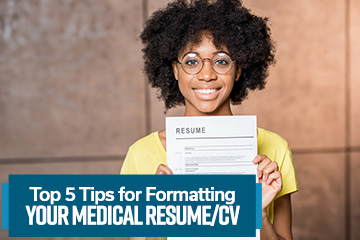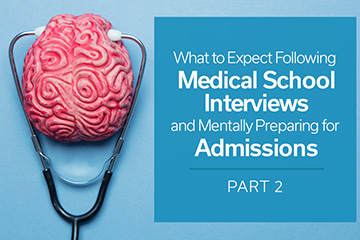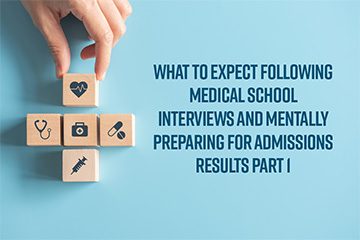
Top 5 Tips for Formatting your Medical Resume/CV
Considering applying to medical school or starting to prepare for residency applications? A solid resume/CV can be integral to your success. But even before then, having a professional and well-formatted resume/CV can assist you in gaining the essential volunteer or work-related experience that you need to help strengthen that very same application. Although only one component of your medical school or residency application, it is essential that you do not overlook the importance of your resume/CV; as it is capable of helping you shine if created correctly, but also negatively impacting your application if not. With that being said, here are my top 5 tips for formatting a resume/CV that is worthy of your great achievements.
1. General: First, some general tips. Your resume/CV should be written using clearly legible fonts, such as Arial or Times New Roman, and be 11-12 points in size. Additionally, it is important that you allow for “white spaces” in your document. Leave space between lines and paragraphs, and use 1 ½ inch margins. I know that you will probably have a lot of information to include, but please resist the temptation to cram everything close together, in an effort to reduce the page count of your resume/CV. If your resume/CV is crowed, sloppy, or confusing it will be overlooked!
2. Headings: It is important that your resume/CV is organised in a way that makes sense to the reader. For that reason, group similar jobs/hobbies/experiences with one another so that the reader can easily follow your resume/CV. Do not write everything that you have done in one long chronological list. Also, ensure that your headings look different than the writing beneath it, so for example, bold, capitalise, or underline your headings. Here are some exemplar headings that you can use:
- Education
- Research
- Employment Experience
- Clinical Experience
- Volunteer Experience
- Awards and Certifications
- Professional Memberships and Affiliations
- Extracurricular Interests
3. Sub-Headings: Under each heading, list your relevant experiences. Here is how each experience should be formatted. For each experience, write the name of your ‘role’ and align it to the left of the page (I would also recommend bolding it so that it stands out). On the same line, aligned to the right, write the dates that you were involved with this experience. On the line below, write the location of where you undertook this role. Here is an example:
Swim School Assistant Sep 2015-Jun 2017
ABC Swim School, City ON
4. Reverse Chronological Order: List all your experiences in your resume/CV in reverse chronological order. So, the first listed experience should be something that you are currently still pursuing (or ended most recently) and the last experience should be the one that you undertook the furthest in the past. Here is an example:
Student Mentor Sep 2020-Present
University ABC, Canada
Mock OSCE Examiner Sep 2019-May 2020 University ABC, Canada
5. Descriptions: Underneath each experience, there should, for the most part, be a summary of your role/what you did. Try to be specific and think about how you can best present yourself. Start each sentence with a key action word (e.g. Worked, Participated, Interacted) and ensure that your action word is in the past tense if you are no longer undertaking that experience, and in the present tense if you are still currently undertaking that experience. I would recommend using at least 2-3 bullet points. Here’s an example:
Student Mentor Sep 2020-Present
University ABC, Canada
- Provide support to first year medical students by offering advice on study skills, organization, and time management ensuring they do not fall behind
- Plan and facilitate group drop-in sessions for students to come by and ask questions or gain assistance in study matters for their academic success.
Mock OSCE Examiner Sep 2019-May 2020
University ABC, Canada
- Examined medical students performing clinical examinations
- Provided constructive feedback and advice to assist them in better preparing for their end of year OSCE






